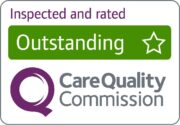As a parent, you want to do everything you can to protect your child’s health. It can be overwhelming to keep up with the latest recommendations regarding vaccines. Recently, the chicken pox vaccine has become a hot topic of discussion among parents and healthcare professionals. The Joint Committee on Vaccination and Immunisation (JCVI) recommends adding the Varicella vaccine (chicken pox vaccine) to a child’s vaccination schedule.
What is Chicken Pox?
As we all know chicken pox is very common, and most of us will have had it at some point during childhood.
Firstly, it’s important to understand chicken pox and why it can harm children. Chickenpox is a highly contagious viral infection. It causes an itchy rash, fever, and fatigue. While most children recover from chicken pox without serious issues, it can be life-threatening for children with weakened immune systems. Additionally, you risk developing shingles later in life if you have had chicken pox before.
How does the vaccine help?
The chickenpox vaccine was approved for use in the United States in 1995. Before the vaccine, chicken pox was a common childhood illness, with approximately 4 million cases reported each year. The vaccine has been highly effective at reducing the number of chickenpox cases, with a reported 90% reduction in cases since its introduction.
How is the vaccine given?
The vaccine is typically given in two doses. The first dose is given at 12 to 15 months of age. The second dose is given at 4 to 6 years of age.
So, should you give your child the chicken pox vaccine?
The American Academy of Paediatrics (AAP) strongly recommends vaccination for all children who have not had chickenpox before. The AAP also recommends that children who have had chicken pox receive the vaccine to further boost their immunity. While some parents may be hesitant to vaccinate their children, it’s important to remember that the vaccine is safe and effective. Serious side effects from the vaccine are rare, and the benefits of vaccination far outweigh the risks.
It’s also worth noting that the chicken pox vaccine can benefit beyond just preventing it. Studies have shown that the vaccine can also reduce the risk of developing shingles later in life. Shingles is a painful condition that occurs when the chicken pox virus reactivates in the body. By vaccinating against chicken pox, you can potentially reduce your child’s risk of developing shingles in the future.
How will it help my child?
The chickenpox vaccine is low-risk and effective at protecting your child’s health. Not only does it help prevent chicken pox, but it can also reduce the risk of developing shingles later in life.
If you’re unsure whether to vaccinate your child, talk to your Linbury Doctor. We can provide you with more information about the vaccine and help you make an informed decision about your child’s health.
Vaccination is critical in protecting your child and the community from dangerous diseases. It’s crucial to remember that the universal vaccination campaign has not yet been confirmed, despite the encouraging news headlines.
If you would like to book a private GP appointment to discuss your child’s vaccinations, click here. Alternatively, call us on 0333 050 7338.


